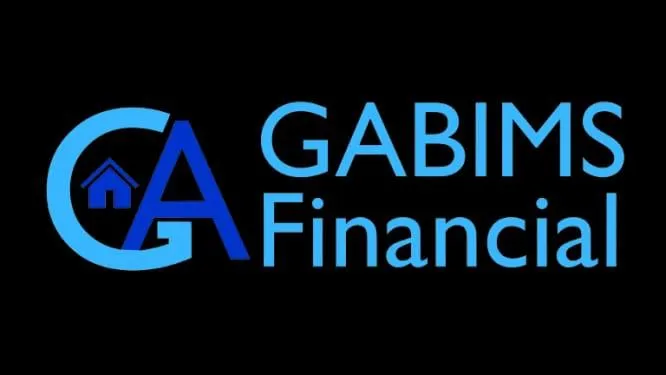Ready to Own Your Home?
Get Expert Mortgage Advice & Competitive Rates in Minutes.
Whether you're a first-time buyer or moving to your next home, we find mortgage deals tailored to your situation. Expert guidance. No hidden costs. Fast track to your keys.

Why Gabims Financial for Your Mortgage?
Expert Guidance Every Step – Buying a home is complex. We simplify it. From understanding deposit options to navigating the property market to choosing between fixed and variable rates—we guide you with clarity and confidence. No jargon, just honest advice.
Competitive Rates from 50+ Lenders – Don't settle for your bank's standard offer. We access a comprehensive lender panel to find mortgage rates specifically suited to YOUR circumstances. Average savings vs. direct bank rates: 0.2-0.5%.
Tailored Mortgage Solutions – First-time buyer with a small deposit? Moving with a large portfolio? Self-employed income? We find mortgage products designed for YOUR situation, not one-size-fits-all solutions.
Transparent Costs, No Surprises – Every fee explained upfront. Every cost calculated. You know exactly what you're paying and why before you commit. No mystery charges at completion.
Faster Path to Completion – Streamlined applications, proactive communication, and expert handling means less stress and speedier completion. Typical mortgage process: 8-12 weeks with Gabims vs. 12-16 weeks with banks.
Mortgage Solutions for Every Homebuyer
First-Time Buyers:
Your biggest hurdle is often the deposit. We help maximize your savings, explore shared ownership schemes, and find lenders offering 5-10% deposit mortgages with competitive rates. You deserve expert guidance on your biggest purchase—and we provide it free.
Home Movers:
Selling one property and buying another creates timing pressure. We coordinate your mortgage offer around your completion dates, manage chain complications, and often secure better rates on new purchases than your current lender offers.
Buy-to-Let Investors:
Building a rental property portfolio requires different mortgage thinking. Higher interest rates, stricter affordability rules, and complex tax implications. We specialize in buy-to-let mortgages and navigate these challenges for you.
Self-Employed & Freelancers:
Banks often reject self-employed applicants. We work with lenders who understand self-employment, accept accountant-prepared accounts, and offer competitive rates. Your varied income isn't a barrier—it's just different.
Moving Abroad or International Buyers – Relocating to the UK? We handle expat and international mortgages with expertise most banks lack.[24
Your Mortgage Choice: Fixed, Tracker, or Variable?
FIXED-RATE MORTGAGES – Rate locked for 2, 3, 5, or 10 years
- Best for: Budgeting certainty; protection if rates rise
- Current rates: 2-year from 4.1% | 5-year from 3.8% | 10-year from 4.2%
- Monthly repayments: Same every month for your entire fixed period
- Downsides: Early repayment charges apply if you sell/remortgage before period ends
TRACKER MORTGAGES – Rate follows Bank of England base rate + margin
- Best for: Those comfortable with rate changes; when base rate expected to drop
- Current rates: Typically Base Rate + 1.5% to 2.5%
- Upside: Repayments fall if base rate drops
- Downside: Repayments rise if base rate rises; less predictability
VARIABLE RATE MORTGAGES – Rate set by lender; can change independently
- Best for: Flexibility over long-term certainty
- Includes: Discounted mortgages, offset mortgages, and SVR (Standard Variable Rate)
- Upside: Lenders may discount rates; potential flexibility in repayments
- Downside: Rate changes unpredictable; monthly costs can jump
Frequently Asked Questions
How much deposit do I really need?
Legally, there's no minimum—but lenders require at least 5%. However, 20% puts you in the best position (no insurance, best rates, more lender options). If you have 10-15%, you're competitive. Less than 5% is limited.
What if my income is irregular or self-employed?
Self-employment is workable. Lenders typically look at 2-3 years of accounts. If you're in your first year, some "specialist" lenders will still approve, but with a higher rate. Contract workers typically need proof of ongoing contracts.
Can I get a mortgage if I've had credit issues?
Yes, but rates will be higher. A default 5+ years ago impacts you less than one from last year. If you've rebuilt credit since, that's valuable. We work with lenders experienced in rehabilitation lending.
Fixed or variable—which should I choose?
Fixed = peace of mind & protection if rates rise. If your budget is tight or you hate uncertainty, fixed is safer. Variable/Tracker = potentially lower cost if rates stay steady or drop. If base rate falls, you benefit; if it rises, you're exposed. Most first-time buyers choose fixed.
What's an overpayment option? Should I choose it?
Allows you to pay extra monthly (typically 10-20% of mortgage payment) without penalty. YES—choose it. Overpayments reduce capital faster, cut interest significantly, and shorten your mortgage term. On a 25-year mortgage, even £100 extra per month saves 2-3 years.
What if the property surveys poorly?
If serious issues are found, the valuation drops, and your LTV ratio changes (potentially affecting rates or loan approval). Negotiate with the seller for repairs, renegotiate the purchase price, or walk away. Don't proceed blindly.
How do early repayment charges work?
On fixed-rate mortgages (typically), if you remortgage or overpay significantly before the fixed term ends, the lender charges a penalty (usually 1-5% of outstanding balance). Our role: calculate whether it's worth paying the charge to switch.
Will the mortgage offer expire?
Yes. Most offers are valid for 6 months. If you don't complete within that window, you'll need a new valuation and potential rate re-quote.
What if I want to overpay after I've mortgaged?
Many mortgages allow 10-20% annual overpayment penalty-free. If you exceed that, early repayment charges apply. Check your specific offer.
I'm moving in with a partner—can we combine mortgages?
Yes, you can take a joint mortgage (both names on the loan & property title). This strengthens affordability by combining incomes. Joint mortgage = joint responsibility for payments.
What fees should I expect?
Lender fees (arrangement, valuation, completion) = £800-1,500. Solicitor fees = £300-800. Surveys = £250-1,500 (optional). Mortgage insurance (if <20% deposit) = varies. Total typical cost: £1,500-3,500. Get quotes upfront.
Get Started
Get in Touch With Us
Contact us anytime for fast, reliable towing service.
